
THE NAVIGATING CHANGE CATALOG IS HERE TO HELP YOU ENGAGE, PROVOKE, AND EDUCATE.
Navigating Change: The Podcast from Teibel Education
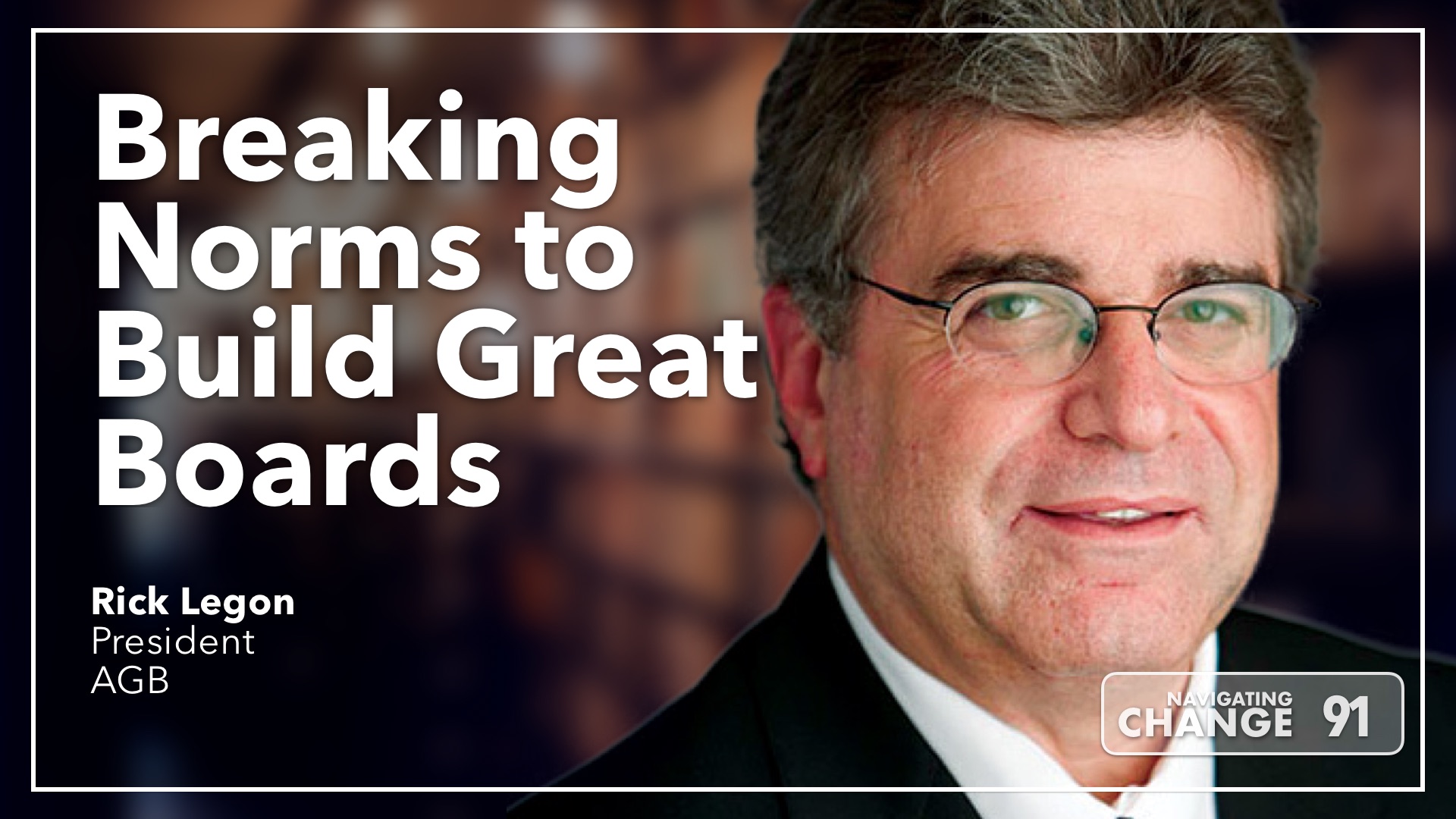
91: Governance — AGB President Rick Legon on Breaking Norms to Build Great Boards
This week on the show, Howard Teibel and Rick Legon discuss the challenges in fostering strong board leadership to help institutions face their collective crises ahead.

90: Governance — Leadership, Strategy, & Creativity at the Top
Today we begin a series exploring governance in higher education from the perspective of leaders across the institution. In a series of conversations with trustees, presidents, faculty and beyond, Howard Teibel and Pete Wright host a dialog around authority, accountability, and responsibility for leadership.

89: Datapoints — Learning to Love your Institutional Research with Loyola's Terra Schehr
Today on the show, we welcome Terra Schehr, Assistant Vice President of Institutional Research and Effectiveness at Loyola University Maryland. Terra shares her experience leading the IR team in demonstrating and serving the institution through data.
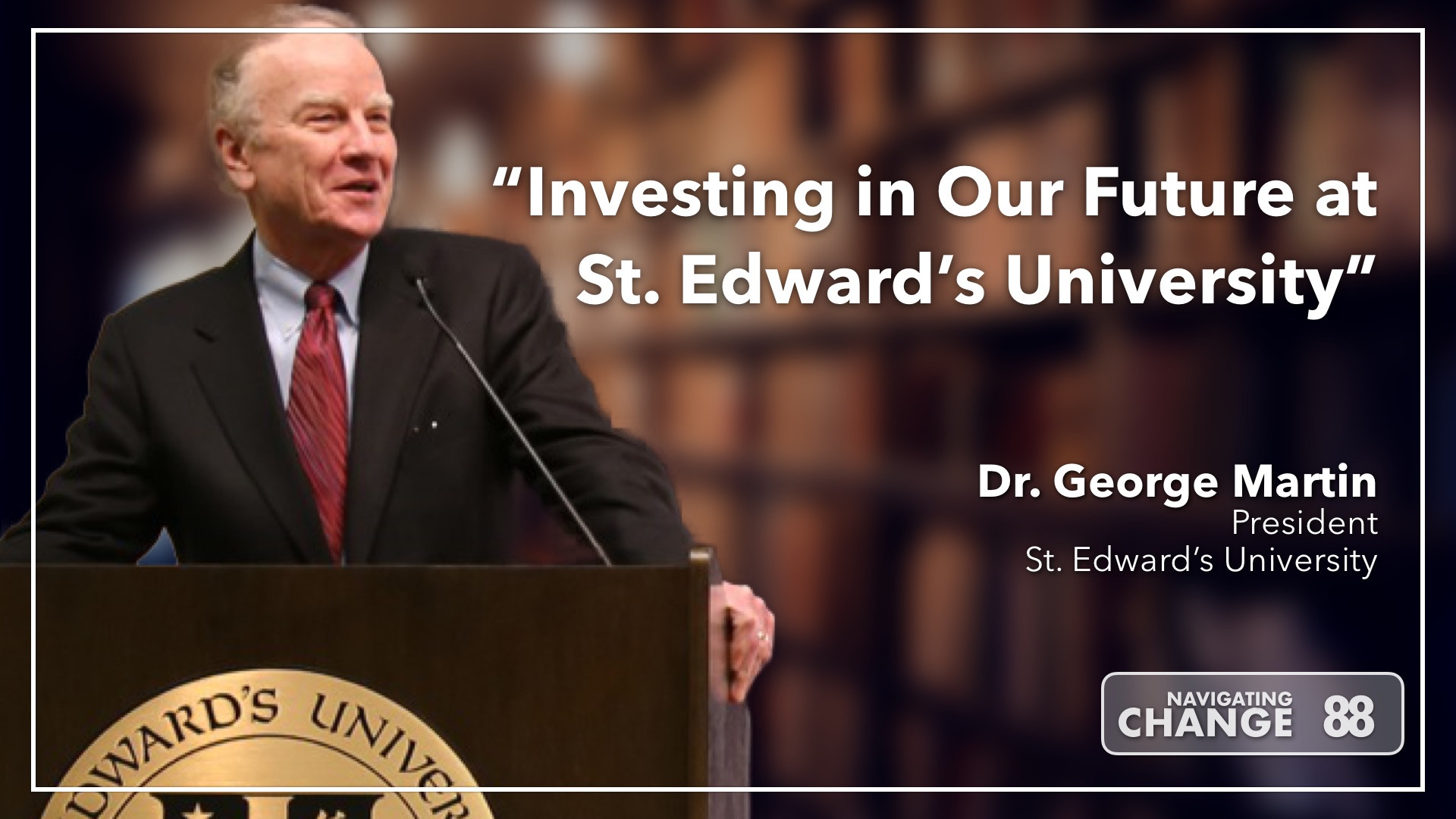
88: President George Martin on Investing in Our Future at St. Edward’s University
This week on Navigating Change, Dr. Martin shares his experience in cultivating top-down and bottom-up decision making that positively engages the entire university community. He outlines is rationale behind embarking on such an audacious change project now, and what success will mean to the finance office — and the culture — of St. Edward’s in the future.

86: AGB President Rick Legon on Board Leadership, Adaptability in the Face of Tectonic Change in Higher Ed
This week, Rick Legon shares his keen insights in the challenges facing board leadership in today’s institutions, and how the Conference on Trusteeship serves to align leaders to face them.

85: Loki's Wager — Building Trust through Difficult Negotiations
This week on Navigating Change, Howard Teibel and Pete Wright discuss Loki’s Wager, and share insight that can help to adjust our natural assumptions around conflict, trust, and the ground rules required for an effective problem-solving and decision-making engine at the negotiating table.

84: Year in Review: 4 Big Trends to Watch in Higher Ed 2015
Holiday breaks are coming to a close and students are heading back to classes as we celebrate one more trip around the sun. This week on Navigating Change, we take on four key trends bound to influence your decision making in 2015 as we reflect on the year gone by. In doing so, we’re setting the stage for our own conversation for year to come around institutional responsibility for external mandates, the role of academic performance measurement in data driven decision making, continued consolidations and shared services, and the leader's role in positively engaging the workforce in the face of great change.

83: Growing Independent School Biz Officers with NBOA President Jeff Shields
We’re thrilled to welcome NBOA President and CEO Jeff Shield to the show this week. Jeff has worked tirelessly to ensure that this upcoming annual meeting is the best yet, and shares not only a fantastic origin story of the association, but offers welcomed insight around the importance of the business officer in the tight knit independent school community, and the challenges they face in collaborative work across their campuses.
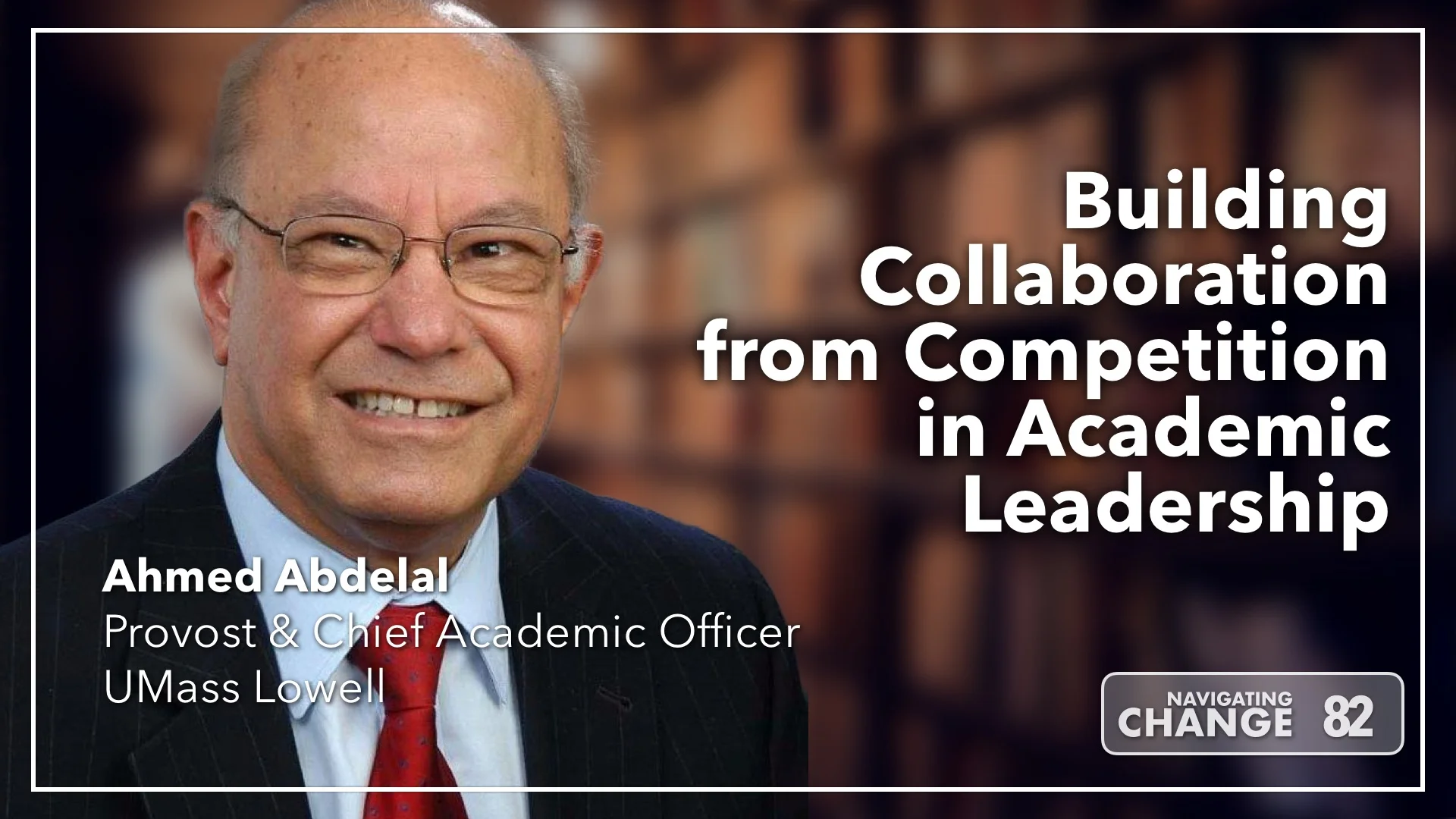
82: UMass Lowell Provost Ahmed Abdelal on Building Collaboration from Competition in Academic Leadership
This week we welcome Dr. Ahmed Abdelal, Provost and Chief Academic Officer at UMass Lowell. His work provides a framework for the structure and culture that makes for a collaborative leadership model that transcends competition and gridlock.

81: Exceptional Group Decision-Making
Creating a culture adept at group decision making is one of the great leadership challenges. It requires alignment in the face of personal stakes on the team, political motivations, individual belief systems and ego. It requires individual contributors to have a keen ability to listen, and an even deeper ability to dig into a key question that is almost never asked, but may be the most important question for team processing: Why are we doing this? This week on Navigating Change, Howard Teibel illuminates the decision making process for teams, shares his own insights for making difficult decisions, and creating teams that do the same.

80: How the Struggle for Perfection can Stifle the Team
For those who live with it, perfectionism can be a powerful tool for creating great work, or a blunt force impeding forward motion. In either case, we often refer to perfectionist traits as profoundly personal, a set of behaviors that impacts us, but that we confidently stow away when teams are involved. The truth: the team is an organism made of individuals. And as individuals, we bring all our behaviors with us. It is the collection of individual traits that determines the identity of the teams in which we work.

79: How do you Transition from Sage to Guide?
This week on the show, Howard Teibel and Pete Wright discuss the key tenets of process consultation and offer guidance for asking tough questions of our own assumptions in our work to drive change in our institutions.

78: Regional Leaders on Regional Challenges in Higher Ed — Live from EACUBO 2014
This week on Navigating Change we’re coming to you once again from the EACUBO 2014 Annual Meeting in Orlando, Florida. Speakers at the conference have been taking on some of the most challenging issues facing chief business officers in higher education. This week, we’re joined by all four regional CUBO presidents for a conversation on the challenges they’re facing in their regions. From dropping high school populations to a changing demographic landscape to dramatically declining state subsidies, each region is working hard to ensure their members are prepared to face tomorrow’s challenges today.

77: Strategic Leadership at EACUBO 2014 with Marta Perez Drake and Lynne Schaefer
This week on Navigating Change we’re coming to you from the EACUBO 2014 Annual Meeting in Orlando, Florida. Speakers at the conference have been taking on some of the most challenging issues facing chief business officers in higher education. We’re kicking off our EACUBO series with two people who serve as leaders in the effort to prepare CBOs for the demands of tomorrow’s institutions.

76: Strategic Leadership and Big Change at Loyola Part 3 — VP of Administration Terry Sawyer
This week, Terry shares his insights on the academic and administrative review from the administrative perspective, and how we were able to form a partnership to deliver both financial and cultural benefits to Loyola Maryland.

75: Building Outstanding Consulting Partnerships
This week on Navigating Change, Howard Teibel shares his experience in building outstanding relationships with external consultants as a consultant himself. From setting clear boundaries for communication, to taking on key strategic responsibilities, Howard’s insights offer a keen view into what makes a consultative partnership valuable in achieving the strategic goals of the institution.
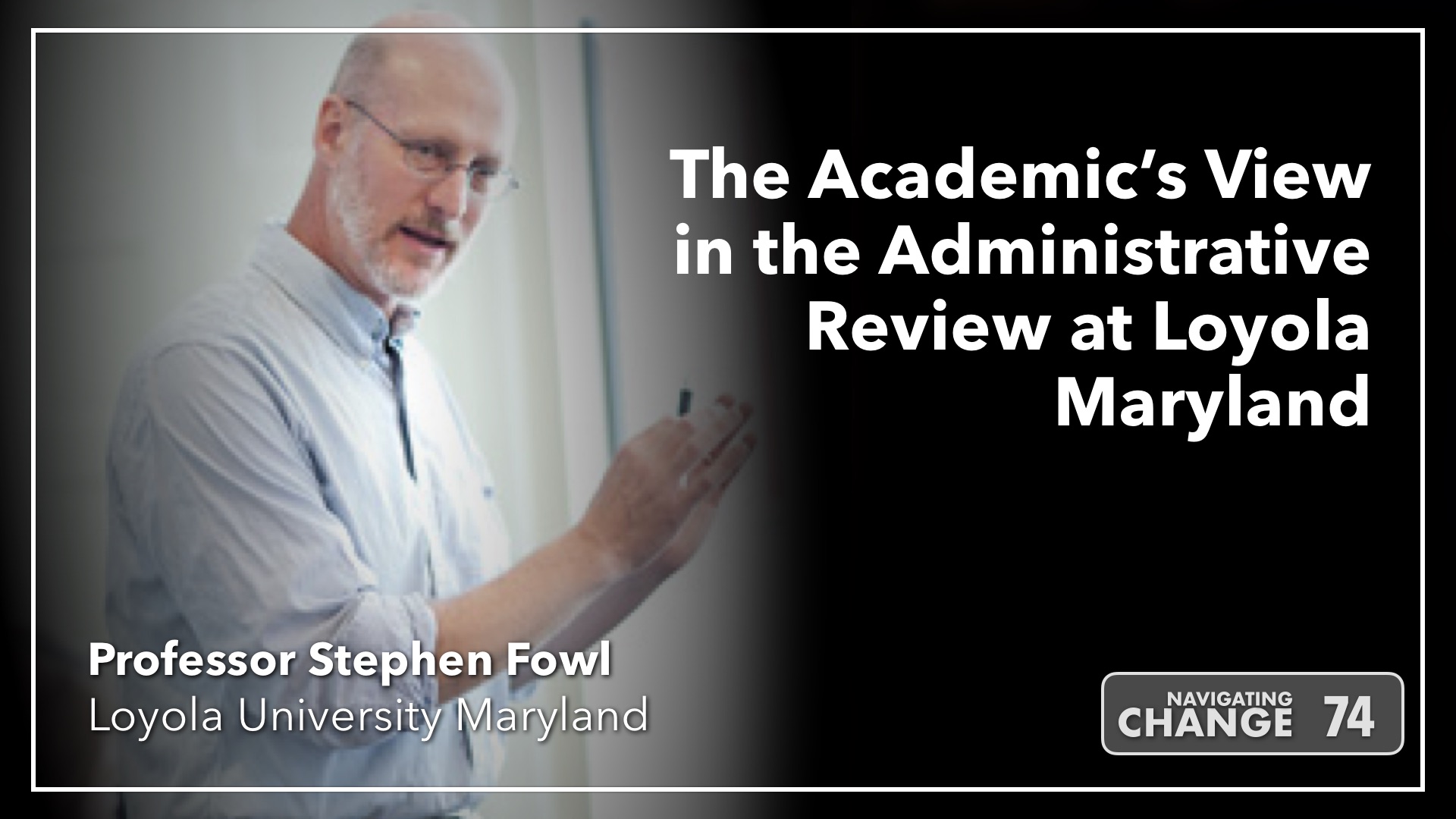
74: The Academic’s View in the Administrative Review at Loyola Maryland Part 2 — Professor Steve Fowl
This week, Steve shares his insights on the academic and administrative review from the faculty perspective, and how we were able to form a partnership to deliver both financial and cultural benefits to Loyola Maryland.
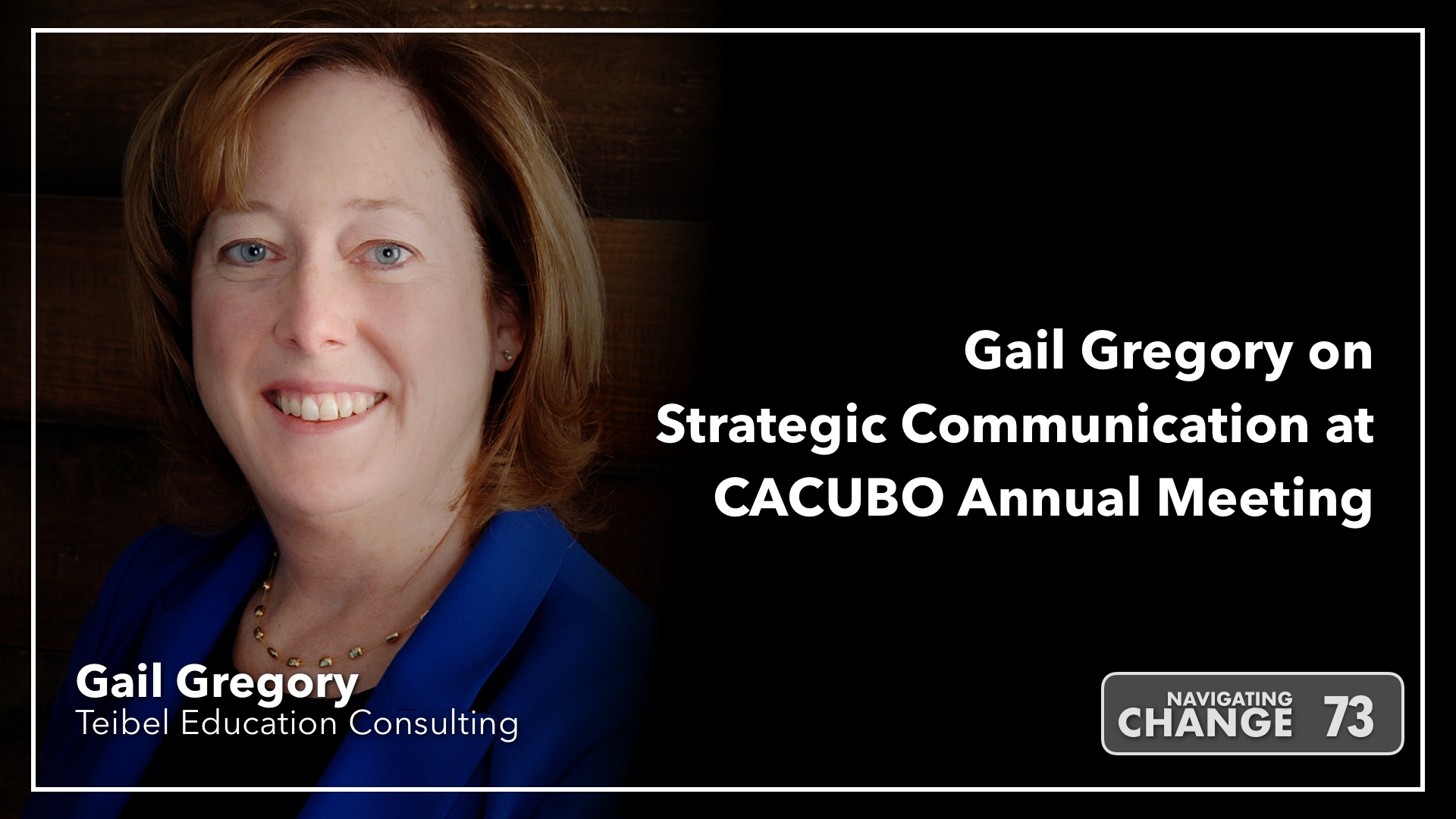
73: Gail Gregory on Strategic Communication at CACUBO Annual Meeting
Gail Gregory will be on-site at the conference delivering her presentation, “Communicating Financial Information Effectively.” This week on the show, Gail joins Pete Wright to share her perspective on strategic communication and the evolving role and responsibility of the business officer, with a great review of the big events coming up this weekend. Listen in!
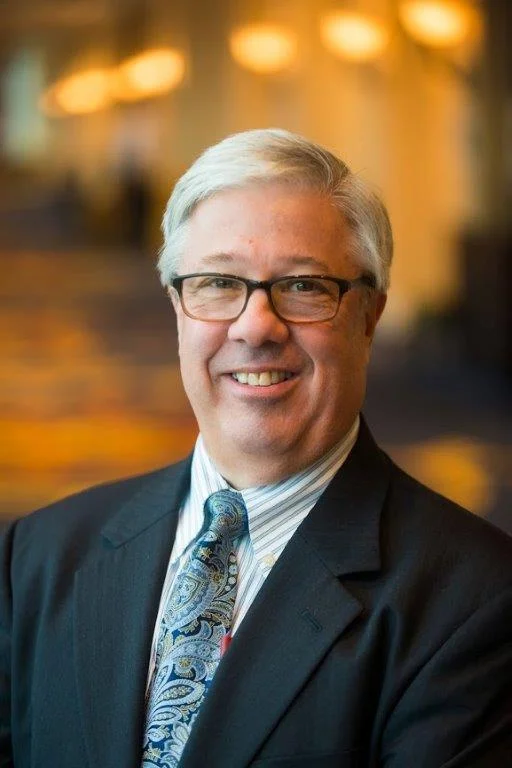
72: The Administrative and Academic Review at Loyola Maryland Part 1 — CFO Randy Gentzler
On Navigating Change, we begin a three-part series to share the administrative and academic review from the inside out. Our first guest is Vice President of Finance of Loyola University Maryland Randy Gentzler, and it was under his guidance that the project ensured its focus not only on ideas for change consistent with mission but also ones that would have a positive financial impact.

71: UNE's Nicole Trufant on Communicating for Clarity at EACUBO 2014
Nicole Trufant joins Howard Teibel and Pete Wright to discuss how the role and responsibility of the business officer has changed in the last decade, and shares insights into her daily work to support her president, administration, faculty, students and parents across the institution.







